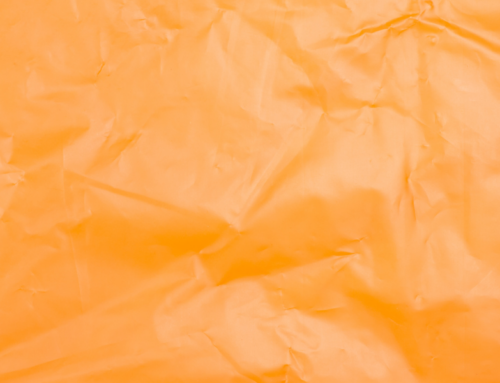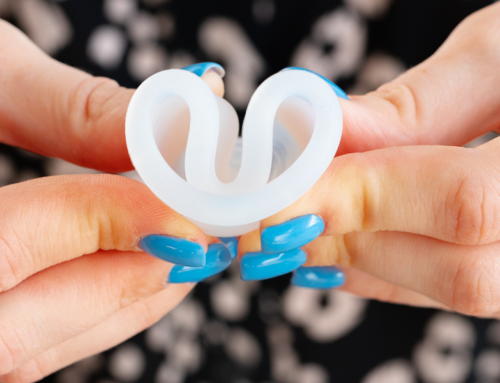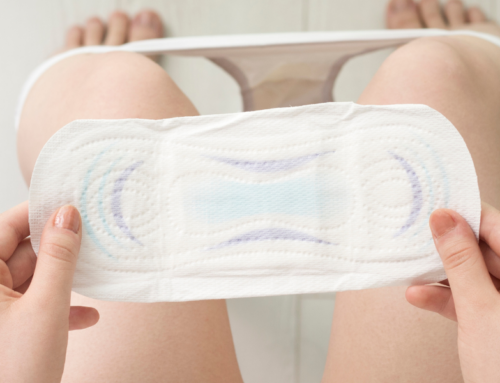One of the biggest mistakes grownups usually make is assuming that children aren’t smart enough to comprehend things. And so we sometimes come up with codes instead of directly telling them about the things they need to know or we simply decide to skip the talk, thinking that it’s probably too early for it. Yet, as we wait for the proper time to do it, we do not realize that we are actually doing more harm than good.
Menstruation is one of these topics. It’s completely normal but many of us still tiptoe around the idea of telling children about it. And by the time they already need correct information about them, chances are they have already heard some incorrect information about it from someone else.

I had the same experience when I was young. No wonder, when I had my period for the first time ever, I was so scared because I had already heard a lot of bad things about it. They were pure misconceptions, yes, but what was I to do? The grownups at home hadn’t given the proper talk about it until I had to deal with it. And, actually, even then, I still heard a lot of myths about periods and was even asked to perform some weird rituals like smearing one’s menarche or first-ever flow, skipping three steps on the staircase, and not taking a bath during one’s period.
It took me years to finally correct my wrong views on periods and I must say, I continue to learn to this day. So, if you’re going to ask me, I’d say that children really need to be told about periods. No matter how weird or awkward the talk may seem, it’s a necessary step. They better learn it from us, people who know the right stuff, than find out about them from unreliable sources, right?
Besides, life is already hard for menstruators all around the world. Some of us may not be fully aware of the correlation yet, but the wrong period-related beliefs that continue to circulate today aren’t helping menstruators at all. They do not have scientific explanations and can be really harmful.
In Nepal, for instance, there’s chhaupadi, in which menstruating individuals are made to stay in menstrual huts or sheds. These people are isolated in the belief that they are unclean due to their menstrual flow. Unfortunately, this practice exposes menstruators to risks, such as physical assault, snake bites, extreme temperatures, and even suffocation that can be caused by a lack of proper ventilation. Of course, such beliefs also cause further discrimination, therefore adding more burden on the shoulders of those who menstruate.
It’s also worth mentioning that since menstruation is connected to a lot of other important things, like sex and reproduction in general, all the more that we need to teach children about it. And we should do it the right way because, whether we like it or not, whatever comes out of our mouths as adults—whether as parents, older relatives, or teachers—can affect the perceptions and even the lives of the children around us.
But first, let’s try to answer this question first: How should one introduce the topic of menstruation to kids?
Establish that periods are normal
To make it easier for children to understand periods and establish that it’s not something to be embarrassed about or made fun of, it’s important to highlight the fact that it’s normal.

To reinforce this idea further, it’s important that we also work on our own attitudes toward menstruation. Are we still hiding our period products especially when there are kids around? Are we confident enough to talk about periods among friends and family members? Do we still make it a big deal when someone we know is menstruating?
Since we are also learning in the process, we also need to reflect on our own behavior. Our actions should follow the beliefs we are trying to impart to young people. This way, we can walk our talk and lead by example.
Don’t have the talk in one go
Talks about things like periods can be overwhelming, considering the amount of information one has to take note of to be familiar enough with the subject—especially if the person we are talking to has not experienced menstruation yet.

For sure, they would find the idea so foreign at first. This is why we should consider gradually introducing the topic of menstruation to children instead of talking about it in one go.
To help you further, you may read this guide from KidsHealth and this one from Rady Children’s Hospital-San Diego.
Don’t dismiss children’s question about menstruation
Children are curious by nature, so there’s a huge possibility that they ask us first about the menstrual cup or whatever period-related they see around before we can even bring up the topic with them. It’s a good opportunity to start telling them things, isn’t it?

So when they start asking such questions, let’s not dismiss them. Otherwise, we’ll simply waste a great chance to start a meaningful conversation about menstruation.
We may also make it seem to them that there’s something shameful about menstruation when we dismiss their questions. And by the time they connect the dots, they’ll probably feel a bit of shame as well.
The first time I saw a disposable pad, my aunt had to lower her voice and wrap it so discreetly. And when I asked what it was, she just told me it was a “sandwich.” When I finally found out what disposable pads were for, I just felt that there was something too shameful about it. The attitude of people around me wasn’t helpful either as they often referred to periods as gross and unlucky.
To this day, I am convinced that if only my question was taken seriously at that time, I would not have felt so wrong about periods when I first learned about their nature.
Don’t make fun of it
Besides talking about menstruation in hushed voices, there’s another way of talking about it that is not helpful at all: making fun of it as if it were a joke.

I mean, okay, period-related experiences can be funny at times. Using humor when discussing serious matters can also be a great strategy. But it all depends on the context. If humor is used tastelessly, to the point of making fun of menstruators and their struggles, then it can be really dangerous as the child may assume that periods are not serious matters and that those who menstruate shouldn’t be taken seriously.
Moreover, bad jokes about periods make menstruators more uncomfortable and embarrassed. When I was in high school, for instance, I had some classmates who often joked about menstruation. They laughed when they saw someone with period stains, they laughed at the sight of any period product, and they made silly jokes about periods in general.
It was traumatizing for many of us that tried to be as discreet as possible when dealing with our periods.
Use the right terms
Bodily functions are normal, so they should not be considered bad or shameful, in the same way that genitals should be called what they really are.

Again, not using the right terms when discussing these things just gives children the message that these things should not be talked about or that they are just wrong. Apart from this, using proper terms is a good way of preparing them because, whether we like it or not, menstruation is going to be their business in the near future.
If they end up menstruating, obviously, they need to be informed about it so they can properly care for and protect themselves. And even if they don’t, they still have to learn things about periods so they won’t end up becoming ignorant individuals who make assumptions about things they barely understand. In other words, they won’t have to be, those people who often downplay the struggles of menstruating individuals just because they do not know anything about how periods work. After all, all their lives, they are going to be surrounded by people who menstruate.
Be scientific whenever necessary
Menstruation isn’t magic. It’s not caused by some force or whatever curse cast upon menstruating individuals. Neither is it a punishment for certain people for whatever sin committed by their ancestors. The best way to make sense of it is by understanding the science behind it. And yes, we have to make this clear when we talk to children about periods.

It doesn’t mean, however, that we should bombard kids with a lot of scientific terms and complex theories and principles that have to do with periods. Instead, what we can do is explain the scientific concepts behind menstruation, such as when people start menstruating and why and what bodily changes are associated with it. Later on, we can also start talking about its link to pregnancy.
A few years ago, I read this quote somewhere:
“Be who you needed when you were younger.”
It struck me, obviously. And it pretty much explains why I am so invested in the things I care about now—now that I already know how easier things could have been for me if only people were able to properly discuss with me all those things that I should know.
So, I think, now that we have the awareness, the proper mindset, and the capacity to talk about these things, maybe we can be the grownups we needed when we were young. Hopefully, with our efforts, we can spark a change.







